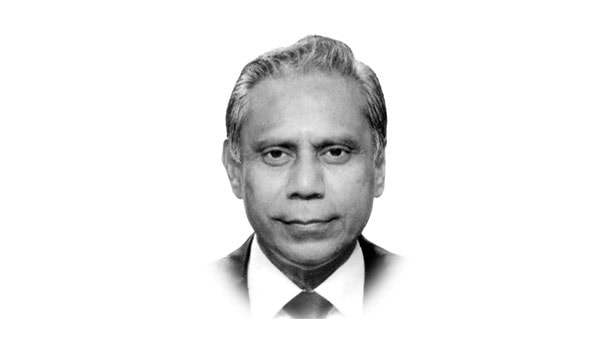Uyghur Forced Labour Prevention Act—bipartisan or?
THE US Senate has passed the bipartisan Uyghur Forced Labour Prevention Act (S.65), which will ensure that goods tainted with the forced labour of Uyghurs, and others, in the Xinjiang Uyghur Autonomous Region (XUAR) and by certain entities affiliated with the Communist Party of China (CPC) do not enter the US market.
Senators Marco Rubio (R-FL) and Jeff Merkley (D-OR) have applauded the Senate passage of their bill.
Rubio went on to declare that a clear message had been sent to Beijing and any international company that profits from forced labour in Xinjiang.
He was insistent that the US will not turn a blind eye to the CPC’s (alleged) ongoing crimes against humanity, and will not allow corporations a free pass to profit from those (purportedly) horrific abuses.
The co-sponsor of the Bill, Merkley echoed Rubio’s thoughts. The bill has a chequered history; it was first introduced in the 116th Congress and on 22 September 2020, it was passed by the House by 406–3 votes.
The bill however, died in committee in the Senate. It was reintroduced in the 117th Congress (S.65) and unanimously passed the Senate on 14 July 2021.
On December 8, 2021, a similar bill (H.R.1155) was passed the House by a 428–1 vote. A revised version (H.R.6256) that eliminated differences between the House and Senate bills was passed by the House on December 14, 2021, and the Senate on December 16, 2021.
It was signed into law by President Joe Biden on 23 December 2021. Rubio rounded up more than 50 cosponsors and guided the bill through the chamber on a voice vote.
It is noteworthy that Rubio is Vice Chairman of the Senate Select Committee on Intelligence, a senior member of the Senate Committee on Foreign Relations and a member of the Congressional-Executive Commission on China (CECC).
Merkley is the Chairman of the CECC and is a member of the Senate Committee on Foreign Relations.
Surprisingly, neither Senator have ever visited Xinjiang or witnessed any of the severe allegations against China, yet they are vehement in their campaign against the People’s Republic of China.
Contrast to this with the May 2022—six days’ extensive tour to China, including Xinjiang by Michelle Bachelet, the UN Human Rights chief.
This was the first visit by the UN’s top rights official to China in nearly two decades and came in the backdrop of severe accusations against Beijing for widespread abuses of Muslims in far-western Xinjiang.
A United Nations team landed in China ahead of the visit by the UN human rights chief to Xinjiang to dig up facts and investigate the allegations of human rights abuse by China.
Interestingly, after her own visit and thorough briefing by her staff, who had preceded her to Xinjiang, Michelle Bachelet did not find fault with Beijing on the charges of gross maltreatment of the Uyghur Muslims, although she did make some comments about transparency and democratic practices.
It must be borne in mind that Michelle Bachelet is no pushover. She can be rightly called the “Iron Lady of Chile” since she served as President of Chile from 2006 to 2010 and 2014 to 2018; she is the first woman to hold the Chilean Presidency and the first elected female leader in South America.
Meanwhile she was not immediately reelectable after her first term, so she was appointed the first Executive Director of the newly created United Nations Entity for Gender Equality and the Empowerment of Women.
In December 2013, Bachelet was reelected and became the first President of Chile to be reelected since 1932.
Bachelet, a physician who has also studied military strategy at university level, was Health Minister and Defense Minister under her predecessor, President Ricardo Lagos.
She is the daughter of Chilean Air Force Brigadier General Alberto Bachelet Martínez, who was arrested by the dictator General Augusto Pinochet, when he seized power through the 1973 Chilean coup d’état.
Bachelet’s father succumbed to the extreme torture he suffered and died during imprisonment.
Bachelet and her mother too were subjected to incarceration, rigorous interrogation and torture.
Thus, she went well equipped to look deeply into any signs of human rights abuses in Xinjiang and found none.
Interestingly, nearly 100 countries expressed their support to China on Xinjiang-related issues at the last UN Human Rights Council session, which ended July 8.
They objected to “politicization of human rights, double standards and interference in China’s internal affairs under the pretext of human rights.
” Liu Yuyin, a spokesperson for China’s diplomatic mission in Geneva, said attempts by some countries to “smear China’s image” using the Xinjiang issue would not succeed.
Ironically, Michelle Bachelet, whose tenure as UN Rights Chief ends on August 31, has faced severe criticism for being too soft on China during her visit and is reportedly being pressured into not seeking a second term.
Meanwhile, the Uyghur Forced Labour Prevention Act has faced criticism within the US.
The President of the American Apparel & Footwear Association stated that blanket import bans on cotton or other products from Xinjiang from such legislation would “wreak havoc” on legitimate supply chains in the apparel industry because Xinjiang cotton exports are often intermingled with cotton from other countries and there is no available origin-tracing technology for cotton fibers.
Major companies with supply chain ties to Xinjiang, including Apple Inc., and The Coca-Cola Company, have lobbied Congress to revisit the legislation.
It is for the readers to decide whether the Rubio-Merkley Uyghur Forced Labour Prevention Act (S.65) is bipartisan or otherwise.
—The Author is a Retired Group Captain of PAF, who has written several books on China.











